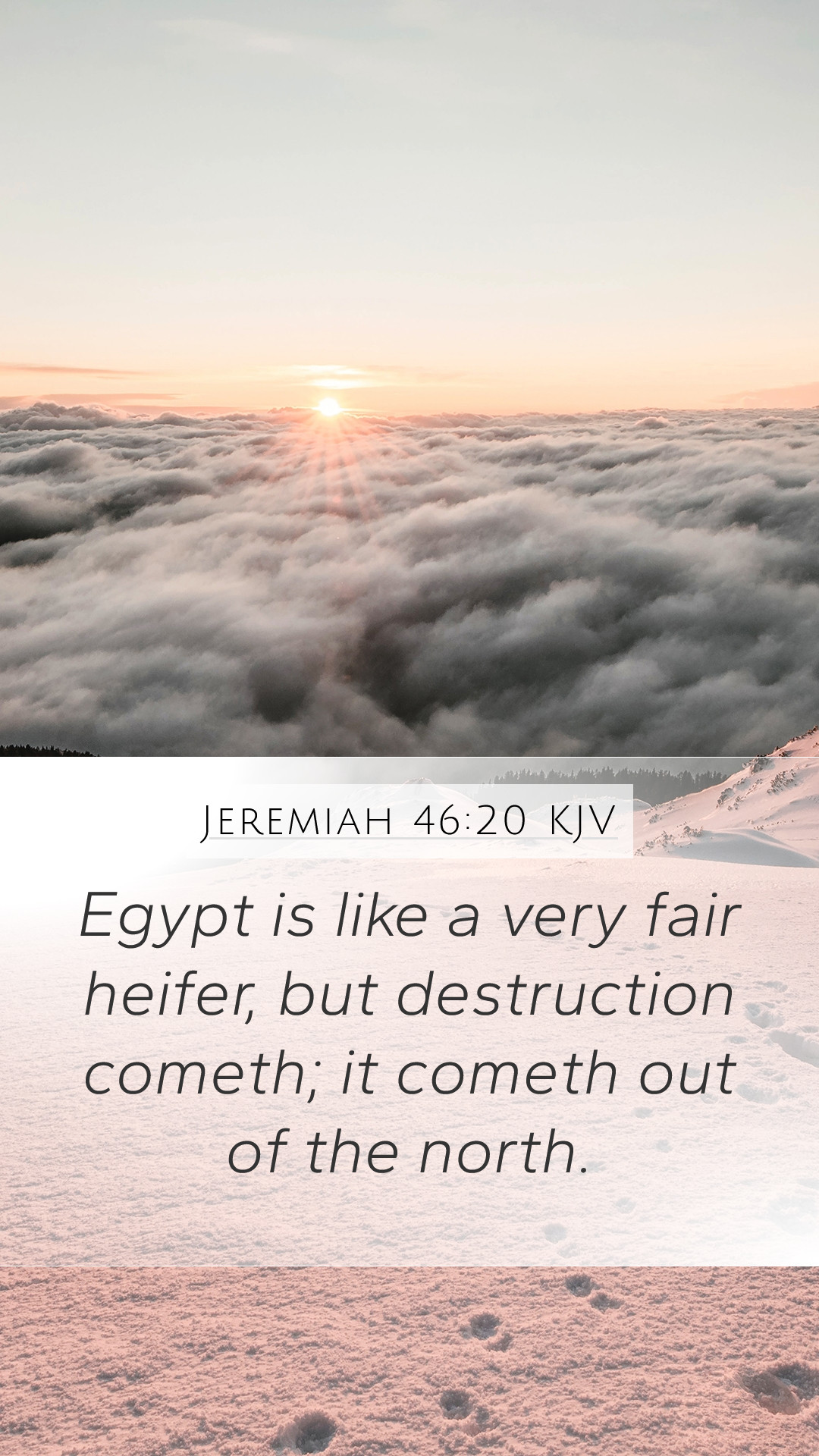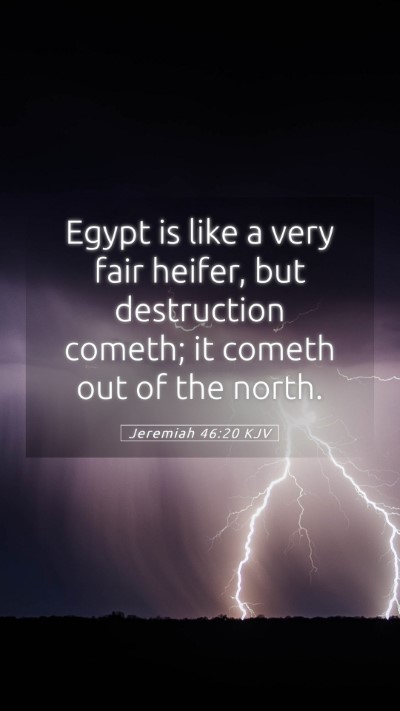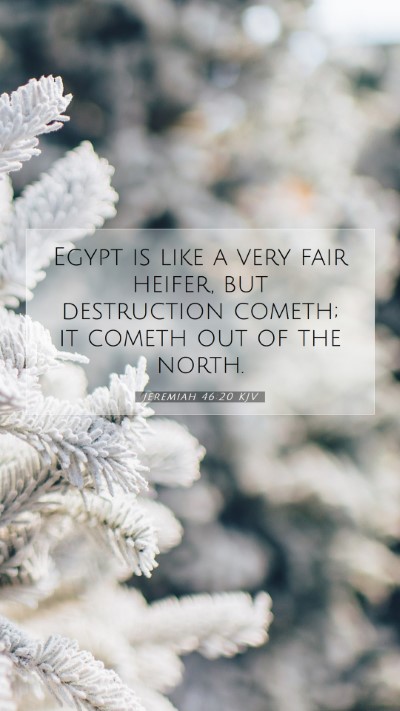Understanding Jeremiah 46:20
Jeremiah 46:20 states: "Egypt is like a very fair heifer, but destruction cometh; it cometh out of the north." This verse presents a powerful metaphorical portrayal of Egypt, likening it to a graceful cow, while foreshadowing impending destruction.
Context and Background
The Book of Jeremiah is a prophetic text that conveys God’s messages through the prophet Jeremiah. This particular verse is set against the backdrop of Egypt's historical context during the time of the Babylonian conquests. Egypt, once a dominant power, is depicted not only in its physical beauty but also in its impending doom.
Verse Analysis
- Metaphor of the Heifer: The comparison to a "very fair heifer" highlights Egypt's former strength and allure. In ancient cultures, a heifer symbolizes fertility and prosperity, suggesting that Egypt appeared prosperous.
- Destruction from the North: The reference to destruction coming from the north serves as a prophetic warning of the Babylonian invasion, as Babylon was geographically situated to the north of Egypt.
- Prophetic Tone: Jeremiah often uses vivid imagery and metaphors to convey God's message, emphasizing both judgment and the consequences of sin.
Insights from Commentaries
Various public domain commentaries provide rich insights into this verse:
- Matthew Henry: Henry emphasizes the irony in Egypt's beauty juxtaposed with its impending ruin. He suggests that this reflects the broader theme of reliance on external power rather than on God.
- Albert Barnes: Barnes delves into the historical context, noting that Egypt, despite its grace, could not escape divine judgment. He points out that like the heifer, nations may seem mighty but must answer to God’s sovereignty.
- Adam Clarke: Clarke interprets the heifer as a symbol of Egypt's prosperity that would soon be overshadowed by calamity. He notes that the imagery serves to evoke a sense of urgency and reflection on the part of the listeners.
Application of the Verse
Understanding this verse provides valuable lessons for modern readers:
- Recognition of Divine Authority: Just as Egypt's power was ultimately challenged, believers today are reminded that all authority is subject to God.
- Vulnerability of Nations: The verse warns against placing confidence in national strength or worldly beauty, highlighting the transient nature of earthly power.
- Call to Repentance: For contemporary readers, Jeremiah’s message encourages self-examination and the pursuit of a genuine relationship with God over reliance on external factors.
Cross References
This verse is related to several other scriptures that expand on its themes:
- Isaiah 19:1: A prophecy against Egypt, emphasizing the divine judgment on the nation.
- Ezekiel 30:4: Another warning about approaching calamity and destruction upon Egypt.
- Jeremiah 44:30: A prophecy regarding the fate of Pharaoh Hophra, reinforcing the theme of impending doom for Egypt.
Conclusion
The exploration of Jeremiah 46:20 reveals profound insights into both historical and spiritual realms. This combined commentary underscores the need for Bible study insights that encompass understanding scripture, interpreting difficult Bible passages, and applying biblical teachings to daily life. Through careful analysis, believers can grasp the significance of such verses, contributing to a deeper understanding of God’s Word.
Whether through personal reflection or Bible study groups, engaging with scripture fosters a richer appreciation of the messages contained within. Such insights lead to beneficial discussions in online Bible study settings, enhancing the exploration of biblical texts.


